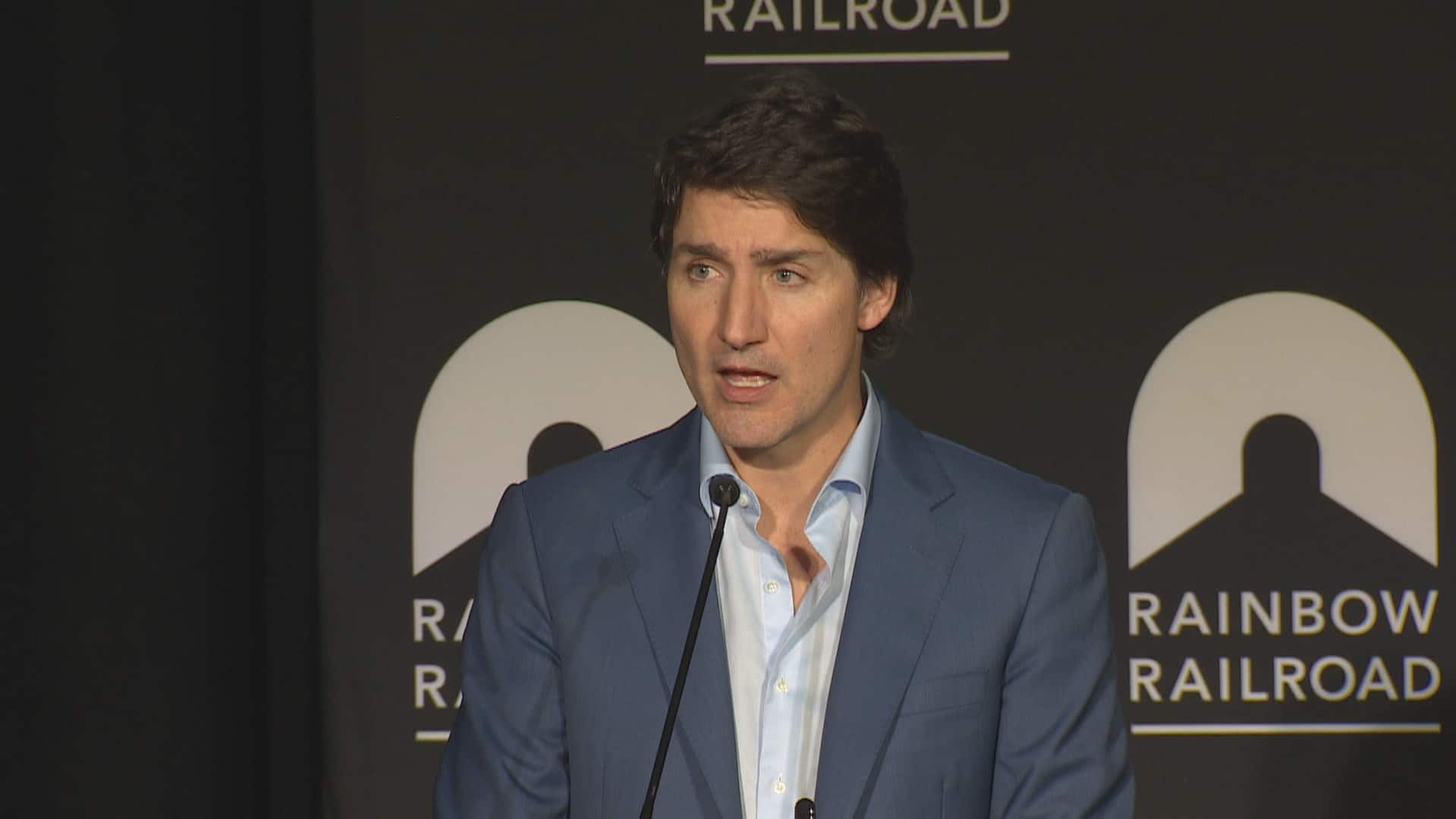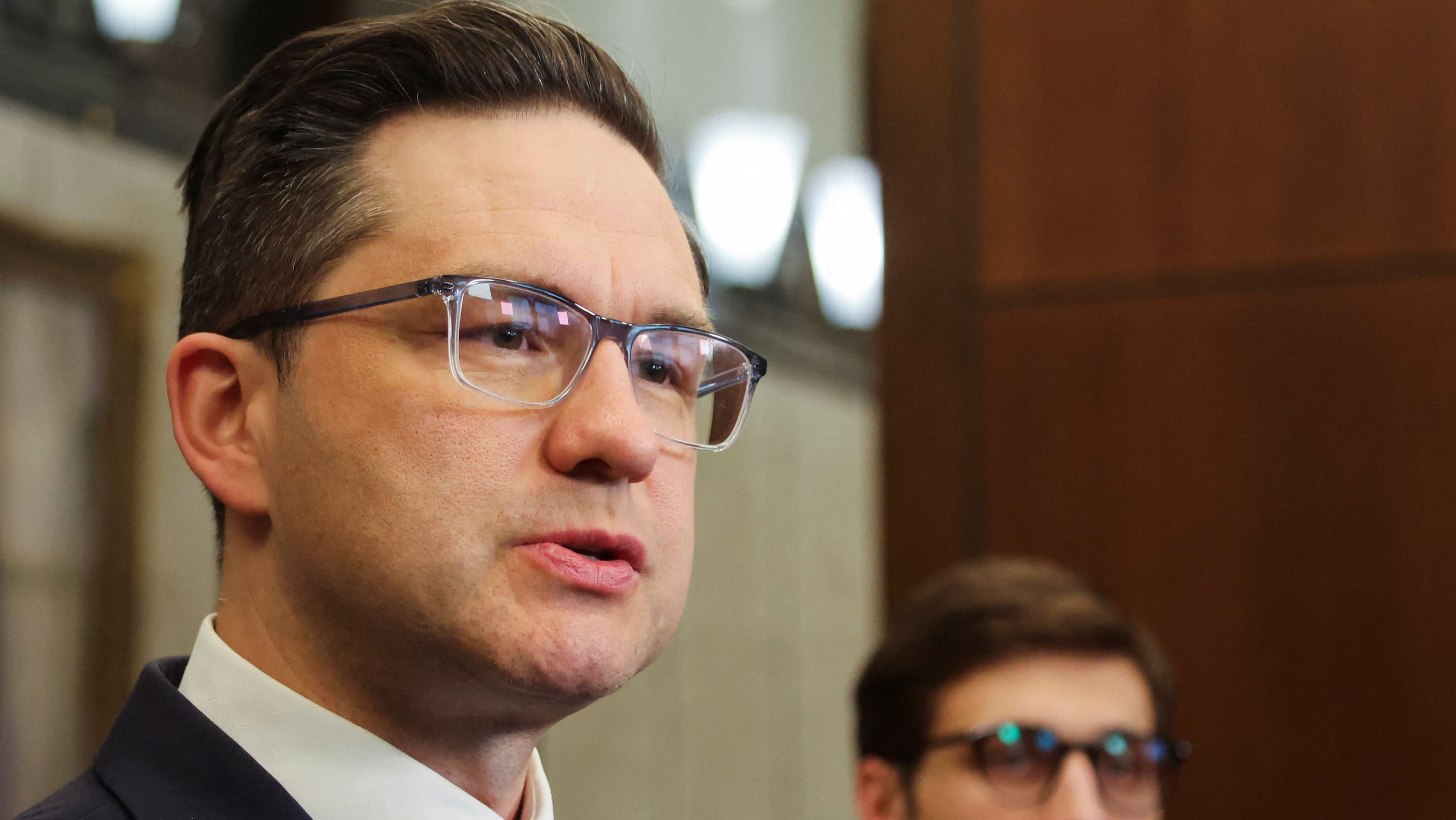As New Brunswick changes its LGBTQ policies in schools, advocates worry this is just the beginning

A policy around LGBTQ students at the heart of a political battle in New Brunswick could have a ripple effect across Canada, according to experts who say they are concerned it could open the door for other provincial governments to make similar changes .
New Brunswick’s Policy 713, which was introduced in August 2020, outlines minimum requirements for a safe environment for LGBTQ students. Earlier in June, the province’s Progressive Conservative government made changes to the policy, which will take effect July 1.
If those changes continue, similar “attacks on the transgender and nonbinary community” could happen elsewhere in Canada, said Kristopher Wells, an associate professor at MacEwan University in Edmonton, and the Canada Research Chair for the Public Understanding of Sexual and Gender Minority Youth.
“Once a government makes a change, it often becomes easier or more popular for other governments to consider those changes as well,” he told CBC News.
“I think other provinces are obviously watching closely to see what the potential impact will be,” said Helen Kennedy, the executive director of LGBTQ advocacy group Egale Canada.
New Brunswick’s recent policy changes no longer require teachers to use the preferred pronouns or names of transgender or non-binary students under the age of 16.
A teacher or school must obtain parental consent for any child who wishes to change their name at school. A student who refuses parent involvement is referred to a school psychologist or social worker to develop a plan to inform the student’s parents.
Prime Minister Blaine Higgs has said the changes reflect the government’s desire to ensure that parents play a role in their children’s “formative years”.
Higgs again defended the changes during an interview with CBCs on Tuesday Power and politicssaying he saw “a huge outpouring of support” for his position.
“Nationally, people are saying, ‘Why shouldn’t parents play a part?'” he said.
At a Pride event Thursday night in Toronto, the prime minister spoke out against changes the Higgs government has made to Policy 713.
Backlash, political debate
The change has led to turmoil in Higgs’ cabinet, including two resignations. On Tuesday, he dropped two ministers who had voted against him on gender identity policy. Union school psychologists and social workers have filed two complaints with the provincial government.
It has also sparked a federal debate, with both Prime Minister Justin Trudeau and opposition leader Pierre Poilièvre agreeing. At a Pride even in Toronto earlier in June, Trudeau spoke out against the changes.
“Trans kids need to feel safe, not targeted by politicians. We need to stand up against this,” he said.
On Tuesday, Poilièvre told reporters to keep Trudeau out of it, saying that “the prime minister has nothing to do with decisions that should rest with counties and parents.”
“So my message to Justin Trudeau is, ‘Come on and let counties run schools and let parents raise kids.’ “
Conservative party leader Pierre Poilièvre says the prime minister should “let the provinces run schools and let the parents raise the children.”
The changes have drawn national attention, with the Canadian Civil Liberties Association (CCLA) saying it will harm trans and non-binary children – not just in New Brunswick, but potentially across Canada.
“Make no mistake that this decision sets a dangerous precedent and could lead to similar attempts to harm children’s rights across the country,” said Harini Sivalingam, attorney and director of the Equality Program at the CCLA, in a statement. statement of 9 June. press release.
Meanwhile, a conservative Christian group in BC is calling it a test case for their own efforts to roll back LGBTQ policies in schools.
Court challenges an option that takes time
LGBTQ rights in Canada are protected under the Canadian Charter of Rights and Freedomsand sexual orientation, gender identity and gender expression are protected in every provincial and territorial human rights law.
According to Wells, this means that every public institution must provide a discrimination-free environment by law.

“But that does not mean that the rights obtained through the courts and through the government cannot be taken away or taken away,” he said.
Wells points to what happened after Jason Kenney was elected prime minister in Alberta – his United Conservative Party passed a controversial education bill that reversed previous protections for children joining Gay-Straight Alliances in schools.
While politicians can pass legislation or policies that could be considered discriminatory, they can also be challenged in court, Wells said, pointing out that there are checks and balances in the system.
In New Brunswick, he said, the only recourse the community really has is to file a human rights complaint or the judicial system.
“But the reality is that it takes a long time to take a government to court to find legislation unconstitutional and strike down,” Wells said.
“There’s nothing stopping a government from passing discriminatory legislation. That’s why people have to be very careful about how they vote.”
Just the beginning?
Egal Canada’s Kennedy says she fears the changes to Policy 713 are just the beginning.
“Do I see a political trend here to scapegoat members of the 2SLGBTQI community? Absolutely,” Kennedy said. “We forget that there are people on the other side of all these political opportunistic actions.”
It’s a hostile environment for the LGBTQ community right now, she said, noting the recent attacks on Pride flags as just one example.
Several communities across Canada, including Norwich, Ont., and Hope, BC, recently decided not to fly Pride flags. There have also been reports of flags being stolen, damaged and burned in several provinces this year.
Earlier this month, students in Vaughan, Ontario, walked out over the York Catholic District School Board’s decision not to raise a Pride flag at the education center.
As for Policy 713, Kennedy says other counties are likely looking at both political responses — will elections be held? Will Higgs fall? — and community response, such as parental pushback. And while she says it’s encouraging to see some opposition, she also says the damage is done.
“It’s out there. We all know how [Higgs] feels for members of the 2SLGBTQI communities, and that’s disturbing,” she said.
“Every child, every student, has the right to a safe and inclusive education.”





